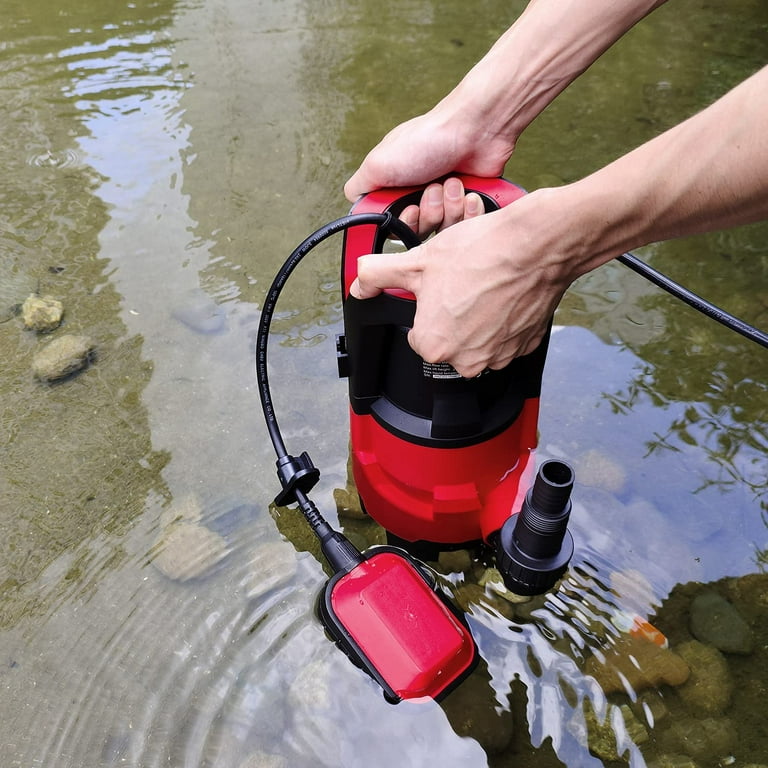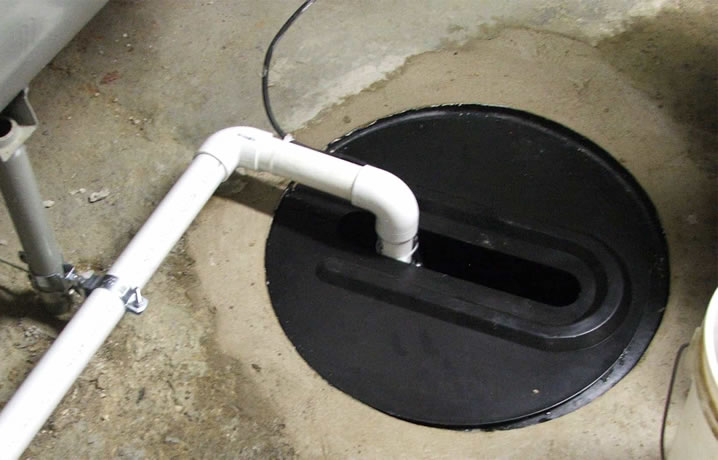How do you actually feel on the subject of Cleaning & Maintenance Tips for Your Home's Sump Pump?

Sump pumps are vital elements in numerous homes, particularly in locations vulnerable to flooding or extreme dampness. They assist prevent water damage by efficiently eliminating excess water from cellars or crawl spaces. However, like any other appliance, sump pumps call for routine maintenance to guarantee they operate effectively when required one of the most. Cleaning your sump pump is an essential part of its upkeep, and comprehending exactly how to do it appropriately can save you from costly repairs and potential catastrophes.
Introduction
Keeping a clean sump pump is crucial for its correct performance and long life. Neglecting this vital task can cause clogs, breakdowns, and ultimately, water damage to your home. For that reason, learning how to clean up a sump pump is critical for property owners that depend on these tools to keep their basements completely dry and protected.
Comprehending the Sump Pump
Before diving into the cleansing process, it's necessary to have a standard understanding of exactly how a sump pump functions. Usually installed in a pit or basin listed below the cellar flooring, a sump pump contains a number of essential parts, consisting of a pump, a float switch, and a discharge pipeline. When water accumulates in the pit, the float button triggers the pump, which after that pumps the water out through the discharge pipe, away from the building's foundation.
Signs of a Dirty Sump Pump
Knowing when your sump pump requires cleaning is important for protecting against prospective breakdowns. Some common signs that indicate a filthy sump pump include weird sounds during operation, decreased water circulation, and visible debris in the pit. If you observe any of these signs, it's necessary to cleanse your sump pump immediately to stay clear of any more issues.
Planning for Cleansing
Prior to you start cleansing your sump pump, it's vital to take some safety and security preventative measures. Beginning by shutting off the power to the pump to avoid any electrical crashes. In addition, use suitable protective equipment, such as handwear covers and safety glasses, to safeguard yourself from dust, debris, and possible virus.
Step-by-step Overview to Cleansing a Sump Pump
Shutting down the Power
Begin by detaching the power supply to the sump pump to stop any accidents while cleaning.
Getting Rid Of Debris and Dust
Make use of a container or a scoop to eliminate any type of visible particles, dirt, or debris from the sump pit. Dispose of the particles correctly to prevent it from obstructing the pump or the discharge pipeline.
Cleansing the Pump and Drift Change
As soon as the pit is free from debris, very carefully get rid of the pump from the pit. Check the pump and the float switch for any type of signs of damages or wear. Utilize a soft brush or cloth to clean the surface areas and remove any kind of accumulated grime.
Purging the System
After cleansing the pump and float button, flush the sump pit with clean water to remove any type of remaining dirt or debris. This will certainly aid ensure that the pump runs efficiently and efficiently.
Checking for Proper Performance
Before reinstalling the pump, perform a quick test to ensure that the float button activates the pump appropriately. Put some water into the sump pit and observe the pump's operation. If whatever is operating correctly, you can rebuild the pump and reconnect the power supply.
Upkeep Tips to Keep Your Sump Pump Clean
Along with periodic cleansing, there are several maintenance pointers you can follow to maintain your sump pump in optimum condition:
Verdict
Cleansing your sump pump is an important aspect of its maintenance and ensures that it runs successfully when you need it one of the most. By complying with the actions outlined in this overview and incorporating regular upkeep into your routine, you can expand the lifespan of your sump pump and secure your home from water damages.
6 STEPS ON HOW TO CLEAN A SUMP PUMP PROPERLY
UNDERSTANDING SUMP PUMPS
Your sump pump plays a crucial role in protecting your home by managing and removing excess water. It primarily functions as a “shield”, guarding your basement against the damaging effects of water accumulation. The pump is housed in a sump pit in the lowest part of your basement, and its job is to pump out any water that collects there.
During heavy rainfalls or when snow melts rapidly, water can infiltrate your basement, posing potential risks like flooding, structural damage, and harmful mold growth. Here, the sump pump springs into action, pumping out the intruding water and directing it away from your home.
SAFETY FIRST
Before cleaning, remember to prioritize safety. Disconnect the sump pump from the power source to prevent any accidental electric shocks. Also, wear sturdy gloves to protect your hands from any sharp or dirty components within the pump.
REMOVE THE SUMP PUMP
After ensuring your safety, the next step is to remove the sump pump from its pit. Doing this might require careful maneuvering as you don’t want to damage any pump components. Once removed, clean the sump pit to remove any accumulated debris or sludge.
INSPECT THE PUMP
Inspect the pump for any visible signs of wear or damage. Check the power cord, float switch, and impeller housing. If any components look worn out or damaged, consider replacing them to ensure optimal performance.
CLEAN THE PUMP
Thoroughly clean the pump with warm, soapy water. Make sure to rid it of any dirt, gravel, or other debris that might impede its performance. You can use a toothbrush to clean the small, hard-to-reach parts of the pump.
REINSTALL THE SUMP PUMP
Reinstall the pump into the sump pit Make sure it’s positioned correctly to remove the water effectively Once it’s back in place, reconnect it to the power source TEST THE PUMP
Finally, pour some water into the pit to ensure the pump works correctly. It should start automatically and begin pumping out the water; if it doesn’t, check the power source and the positioning of the pump.
Remember, while cleaning your sump pump is an essential part of home maintenance, hiring a professional plumber for a thorough inspection and cleaning at least once a year is also important. This will ensure that your pump is in optimal condition, ready to protect your home from potential water damage.
BEST PRACTICES FOR CLEANING SUMP PUMP DISCHARGE PIPES
Regular Inspection: Regularly inspect your discharge pipes, especially during heavy rainfall or snowmelt periods. Look for any signs of blockage or damage. Early detection of problems can prevent serious issues down the line. Periodic Cleaning: Over time, sediment and debris can accumulate in the discharge pipes, impeding the flow of water. Regular cleaning helps keep the pipes clear and functioning efficiently. You can use a high-pressure water jet to effectively clean the pipes. Insulation During Winter: In colder climates, discharge pipes can freeze, blocking the outflow of water. Protect your discharge pipes from freezing temperatures by insulating them with foam pipe insulation. This will ensure the sump pump can continue to discharge water even in freezing conditions. Proper Positioning: The discharge pipe should be positioned to direct water away from your home’s foundation. Improper positioning can lead to water seeping back into the basement. Ensure the pipe is long enough and angled correctly. Installation of a Check Valve: A check valve prevents water from flowing back into your sump pit after the pump has pushed it out. Installing a check valve helps maintain the efficiency of your sump pump and reduces the risk of flooding. Minimize Pipe Turns: Every curve or turn in the discharge pipe can decrease the efficiency of water flow. By minimizing turns and bends in your discharge pipe, you can increase the efficiency of your sump pump. https://www.fullspeedplumbing.com/how-to-clean-a-sump-pump-properly9999/

Do you appreciate reading about How To Effectively Clean A Sump Pump? Post feedback down below. We'd be happy to see your thoughts about this blog post. We are looking forward that you come back again later on. Sharing is nice. Who knows, you may be doing someone a favor. I love reading our article about .
Request Estimate